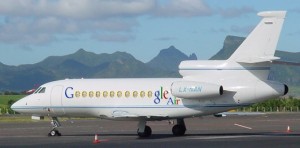Aug
19
2010
August 19, 2010 by Aaron Goldman

Last week Google and Verizon announced a “Joint Policy Proposal for an Open Internet.”
This triggered an outcry from a wide range of constituents including policy-makers, consumer advocacy groups, and even the Daily Show.
Here’s my quick POV…
The lesson of chapter 16 is “Altruism Sells.” To date, Google has avoided severe backlash when it comes to public policy because of its “Don’t Be Evil” halo.
I’m not sure Google can hide behind that credo much longer though. I’m no expert on net neutrality but what’s clear to me is the proposal Google laid out with Verizon protects its own interests first.
It’s no coincidence that Google is getting into bed with one of the largest carriers and advocating different rules for wireless now that it owns one of the biggest mobile operating systems in Android.
For deeper analysis, check out fellow MediaPost Search Insider Rob Garner’s recent column, “Google’s Shocking Change Of Heart On Net Neutrality.”
Meanwhile, I’ll scontinue brushing up on the details of this proposal and trying to separate facts from myths.
My hunch is that, as I dig in to Google’s efforts to create a Swiss Internet, I’ll find more gaping holes than that country’s well-known cheese.

Image Sources – EPL TALK, MuslimMatters.org
Category: Google, Google News | Comments (1)
Jul
3
2010
July 3, 2010 by Aaron Goldman

On Thursday, Google announced it would acquire ITA, a travel software firm, and immediately launched the requisite website pro-actively lobbying to get the deal approved by regulators.
I shared the following POV on the implications of the Google ITA acquisition with Laurie Sullivan of MediaPost for her article, “Google Buys ITA Travel Software Co. For $700 Million Cash, Dings Bing.”
Let’s start with advantages to users, which is always how Google thinks about things. The future of search utility is not in links but in actions. In my book [Chapter 21: Future Proofing, to be exact] I talk about how the future is search-and-act engines or “app-ssistants” like Siri (which Apple bought) that allow you to give instructions rather than submit queries and deliver actions not just links. So for example, if you’re planning a trip you can just tell your app-ssistant, “Chicago to New York for pleasure” and it will fetch you an itinerary with airlines, hotel, car rental, dinner reservations, theater tickets, etc. all based on your saved preferences. In this example, a product like ITA is critical to gathering and organizing much of the data needed to complete the action.
For advertisers, the advantages are a little less obvious. Long-term, search-and-act engines will provide tremendous opportunities to brands that have digitized and distributed their assets [as outlined in Chapter 17: Show Off Your Assets] so app-ssistants can find them and include them in the actions they deliver. Short-term, ITA likely means more traffic to Google and, importantly, more commercial queries that advertisers love because they represent someone ready to buy, read: strong ROI. [More on this in Chapter 4: Mindset Matters.]
For Google, more commercial queries mean more ad revenue. Also, Bing has been playing up its strengths in travel with Farecast integration. This deal should give Google the decided edge and help it retain share.
Image Source: Channel Fever.net
Category: Citations, Future, Google, Google News, Press | Comments (32)









